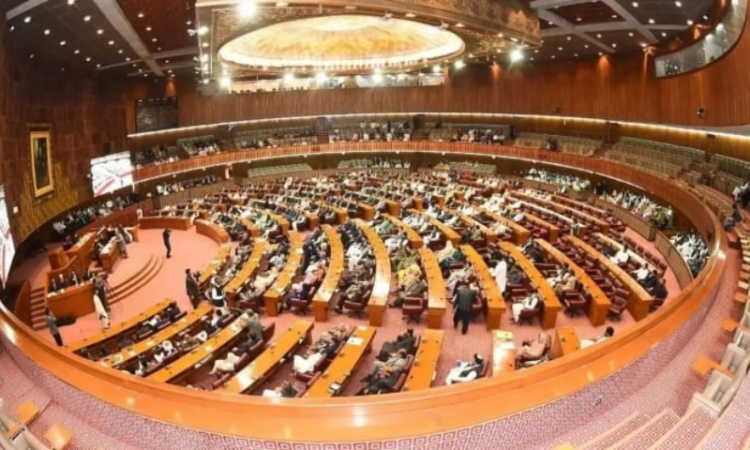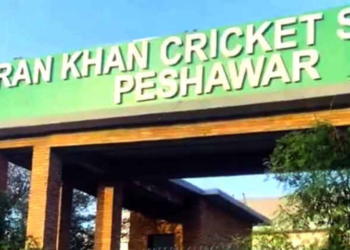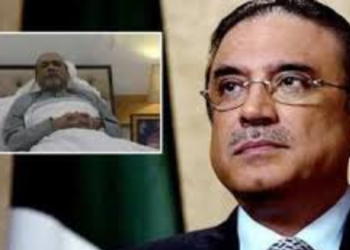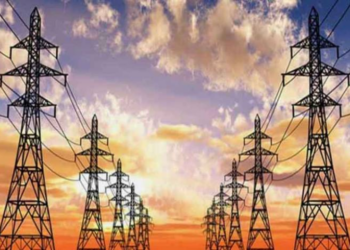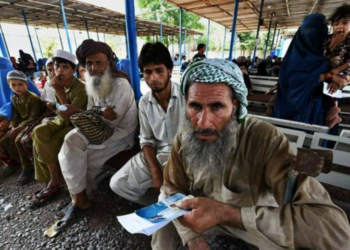Islamabad, March 18, 2025: A high-level in-camera session of the Parliamentary Committee on National Security (PCNS) convened today in the lower house of parliament, bringing together civil and military leaders to discuss the worsening security situation in Pakistan. The meeting, called by National Assembly Speaker Ayaz Sadiq on the advice of Prime Minister Shehbaz Sharif, is taking place under tight security.
The session is being attended by Prime Minister Shehbaz Sharif, Chief of Army Staff (COAS) General Asim Munir, Director General Inter-Services Intelligence (DG ISI) Lieutenant General Asim Malik, chief ministers of all four provinces, and other senior officials. However, notable absentees include Interior Minister Mohsin Naqvi, Opposition Leader Omar Ayub, and members of the Pakistan Tehreek-e-Insaf (PTI), who have chosen to boycott the meeting.
Security briefing and recent terrorist attacks
The military leadership is expected to provide a comprehensive briefing on the security challenges facing Pakistan, particularly in Balochistan and Khyber Pakhtunkhwa (KP), where terrorist activity has escalated.
The urgency of the meeting follows last week’s deadly attack by the outlawed Balochistan Liberation Army (BLA), in which militants targeted a passenger train in Bolan district. The assailants blew up train tracks and held over 440 passengers hostage in a dramatic day-long standoff with security forces. When the military launched a rescue operation, the attackers killed 26 passengers before security forces eliminated 33 militants. Four security personnel were also martyred in the operation. Among those killed on the train were 18 security personnel, three railway officials, and five civilians.
Pakistan’s ranking in Global Terrorism Index
The meeting also takes place against the backdrop of alarming statistics revealed in the Global Terrorism Index 2025, which ranks Pakistan as the second-most affected country by terrorism. Previously placed fourth, the country has witnessed a staggering 45% increase in terrorism-related deaths, rising from 748 in 2023 to 1,081 in 2024—one of the sharpest surges globally.
The number of terrorist attacks has more than doubled, increasing from 517 in 2023 to 1,099 in 2024. This marks the first time in the index’s history that Pakistan has recorded over 1,000 attacks in a single year. The provinces of Balochistan and Khyber Pakhtunkhwa, which share a border with Afghanistan, remain the hardest hit, accounting for over 96% of all terrorist incidents and fatalities.
Political fallout and opposition boycott
The high-profile meeting has also been overshadowed by political divisions, with the PTI and several opposition parties refusing to attend. The PTI had previously demanded that the government facilitate a meeting between its leadership and former Prime Minister Imran Khan, who remains imprisoned at Adiala Jail.
At a press conference, PTI Secretary General Salman Akram Raja confirmed that the party’s political committee had decided the previous day that no PTI representatives would participate in the meeting—except for KP Chief Minister Ali Amin Gandapur, who is attending in his capacity as the province’s representative.
Adding to the boycott, the Tehreek-e-Tahaffuz-e-Ayeen-e-Pakistan (TTAP) alliance, led by Mahmood Khan Achakzai, also announced its decision to skip the session. Similarly, Balochistan National Party-Mengal (BNP-M) leader Sardar Akhtar Mengal and Majlis Wahdat-e-Muslimeen (MWM) Chairman Allama Raja Nasir Abbas declared that their parties would not participate.
Opposition’s criticism of the government
Speaking to the media, TTAP chief Mahmood Khan Achakzai warned that Pakistan was facing an extremely dangerous period, alleging that the real crisis was electoral manipulation. He claimed that a winning party was deliberately made to lose in the elections, accusing those responsible of violating the Constitution.
Achakzai demanded a joint session of Parliament with a two-day meeting, where all lawmakers, including PTI’s leadership, should be briefed. He criticized the restrictions preventing political leaders from meeting Imran Khan and questioned whether the former prime minister was being treated as a dangerous individual or unfairly isolated.
He further described Prime Minister Shehbaz Sharif as an “unconstitutional leader” and argued that no meaningful national security discussions could take place without the PTI founder’s involvement.
Meanwhile, Sunni Ittehad Council (SIC) chief Sahibzada Hamid Raza echoed these concerns, stating that the PTI leader’s exclusion from decision-making would alienate the public. He stressed that negotiations, rather than military operations, should be prioritized to address the security crisis.
Government’s response
During the meeting, Prime Minister Shehbaz Sharif condemned terrorism as a “scourge” and reaffirmed his commitment to eliminating the menace. He paid tribute to martyrs who had sacrificed their lives for Pakistan’s security and underscored the need for a united political front against terrorism.
National Assembly Speaker Ayaz Sadiq criticized the opposition’s decision to boycott the meeting, calling it a “disappointing and irresponsible stance”. He emphasized that national security discussions require bipartisan cooperation and urged all political factions to set aside differences for the sake of the country.
The in-camera meeting continues as civil and military leaders deliberate on counterterrorism strategies. However, with the political divide deepening and opposition parties questioning the legitimacy of the government’s leadership, the prospect of a unified national security strategy remains uncertain.


